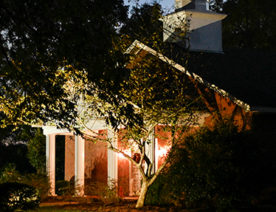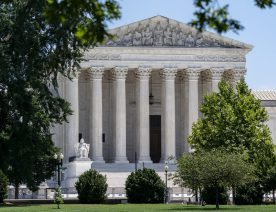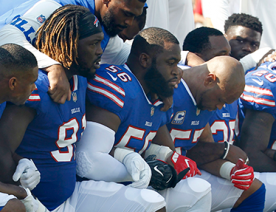
September 29, 2022
More people approve than disapprove of the Supreme Court’s recent ruling to allow a public high school football coach to pray on the field. More than 6 in 10 think a coach leading a team in prayer, a player leading a team in prayer, or a coach praying on the field without asking the team to join in should all be allowed at public high school sporting events.
Few Americans are concerned that the Supreme Court ruling will make students feel pressure to participate in prayer or make students feel less welcome participating in high school sports. Most do not think the court’s ruling will lead to other public school officials praying with students during school hours. And just 30% of the public feels that religion has too much influence on what children are taught in school.
When it comes to professional sports, more people approve than disapprove of professional athletes praying on the field or expressing their faith publicly. Forty-five percent approve of professional athletes wearing religious symbols while on the field. However, only 30% approve of professional athletes kneeling during the national anthem.
Most people have not been closely following the Supreme Court decision regarding the high school coach praying on the field after games. Just 32% have read or heard much about it. Sixty-eight percent haven’t heard much about it, including 45% who report they haven’t heard or read anything at all.
After receiving a description of the outcome, more people approve than disapprove of the Supreme Court decision, especially born-again Christians, people who consider religion important, and Republicans.
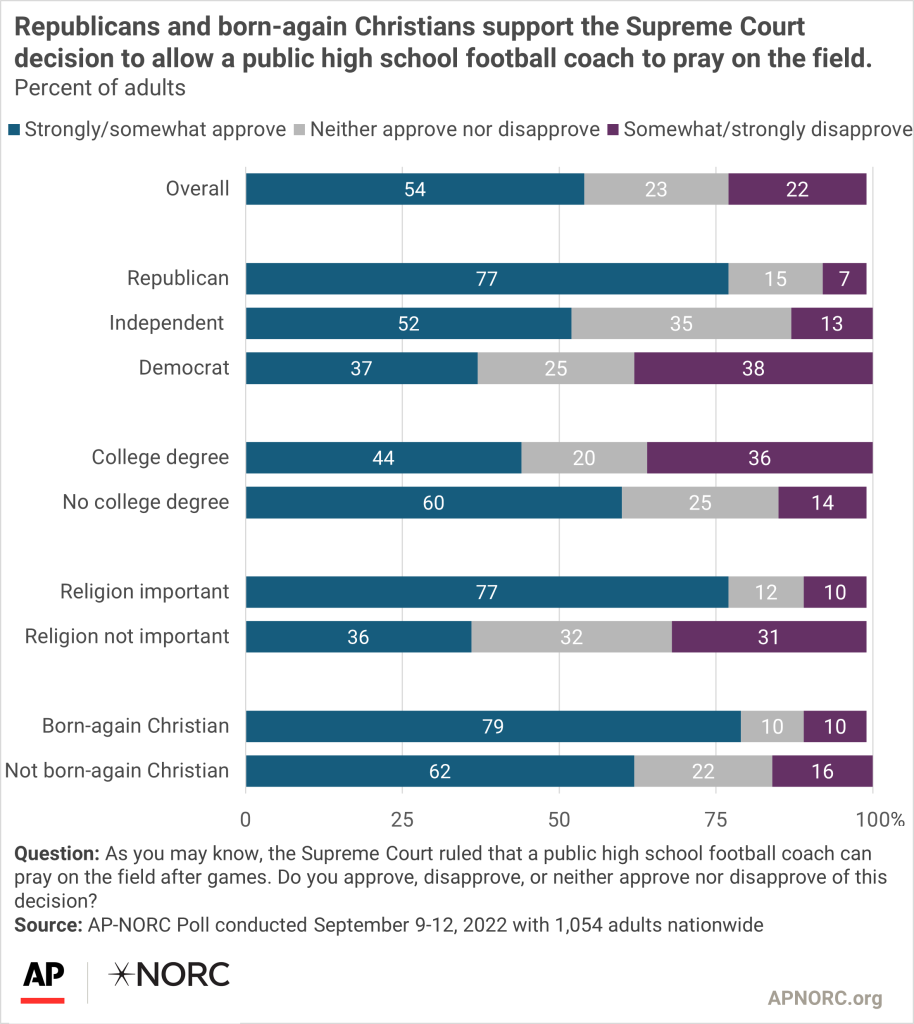
Democrats are more likely than Republicans to say they are concerned about how the Supreme Court ruling might affect public education. Adults without a college degree and those who prioritize religion are not as worried about potential consequences of this decision.
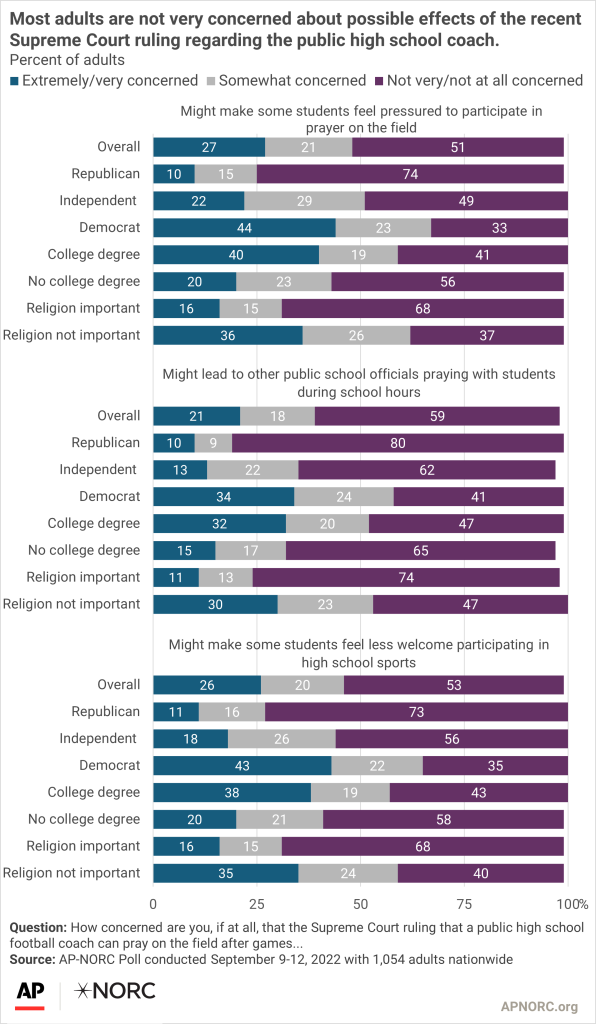
Although most people are not worried about the effects of the recent Supreme Court decision, there is disagreement about which religious practices should be permitted in public schools. Democrats are more likely than Republicans to oppose teachers leading a prayer in class, students leading a prayer in class, teachers praying without asking the class to join, or religious leaders saying a prayer at graduation.
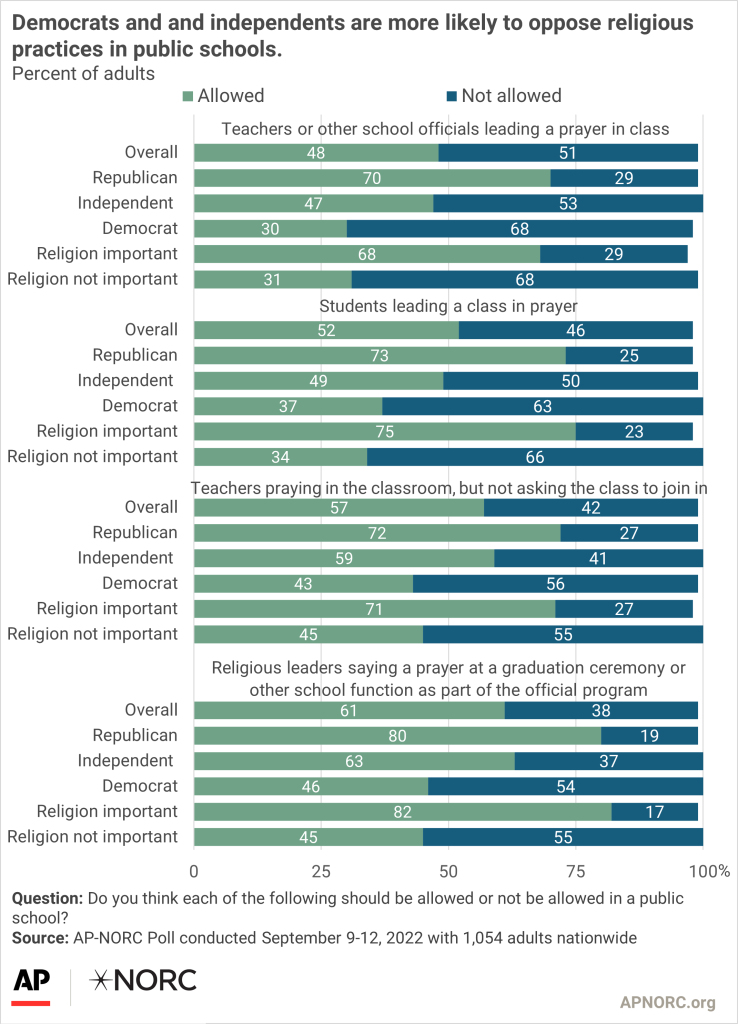
People are also split on whether religion has too much influence on what children are taught in school. Democrats and those who do not personally prioritize religion are more likely to say there is too much religious influence on education. But only 1 in 4 adults believe that religion has too much influence on public high school sports, college sports, and professional sports.
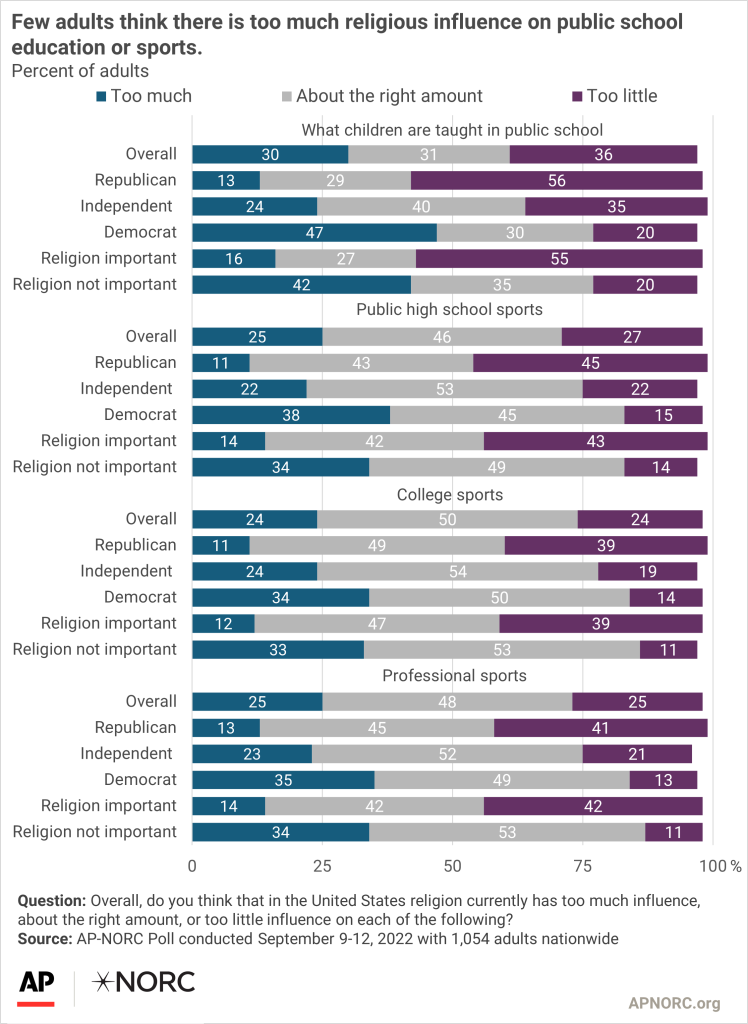
More people favor than oppose professional sports teams playing “God Bless America” and the national anthem before sporting events. Republicans are more likely than Democrats to favor “God bless America” (84% vs. 32%) and the national anthem (88% vs. 54%) playing before games.
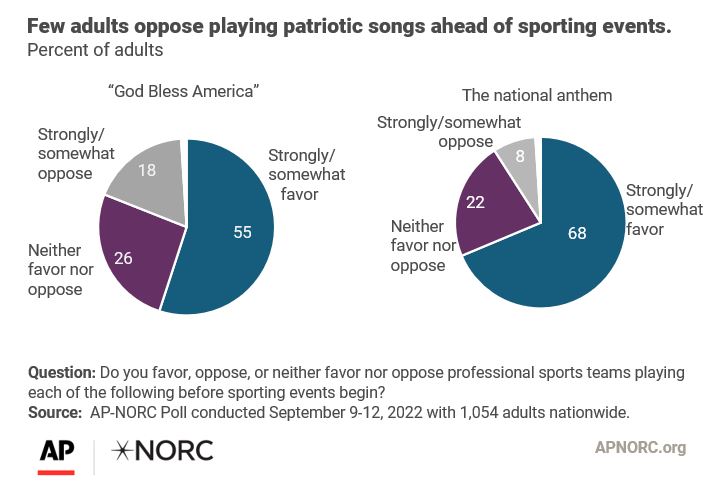
Few adults disapprove of professional athletes praying on the field or expressing their faith publicly. Though opinion toward professional sports players kneeling during the national anthem is more divided with 30% approving of that form of protest and 37% disapproving.
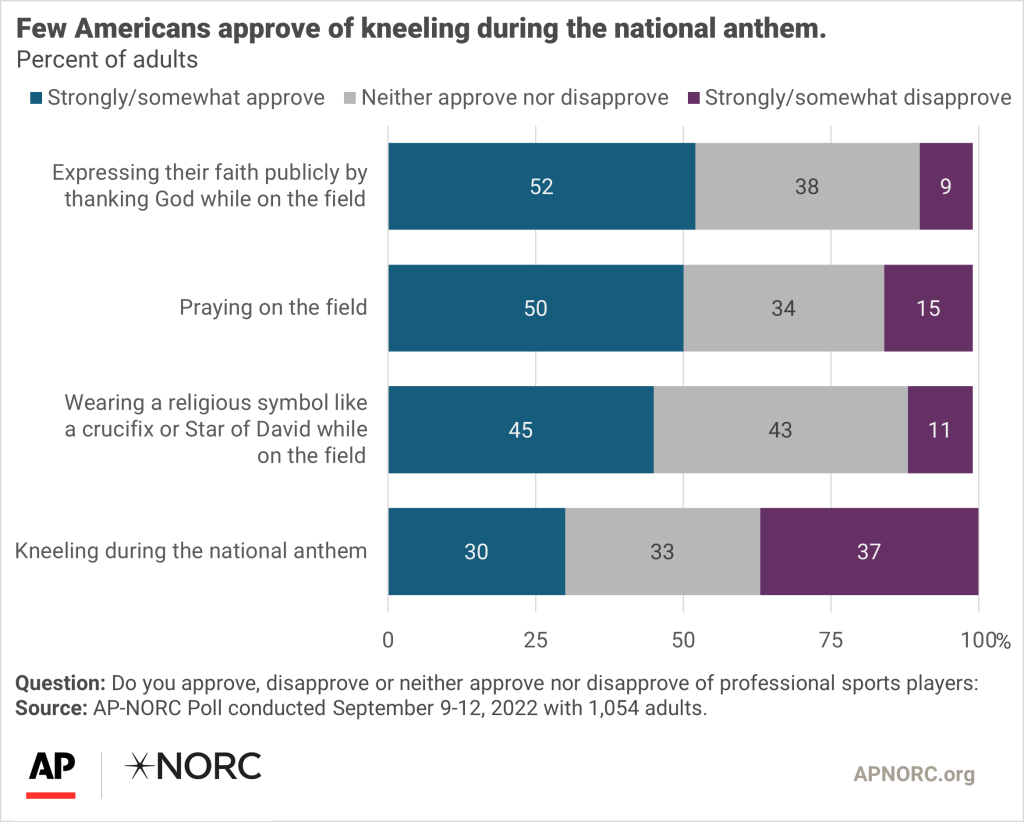
Nearly 3 in 10 adults feel God or prayer can play a role in determining which team wins a sporting event. A quarter say that superstitions or rituals can affects which team wins a game.
More than half of born-again Protestants feel God and prayer plays a role in determining which sports team will win a game. That compares with about a quarter of mainline Protestants and about a third of Catholics.
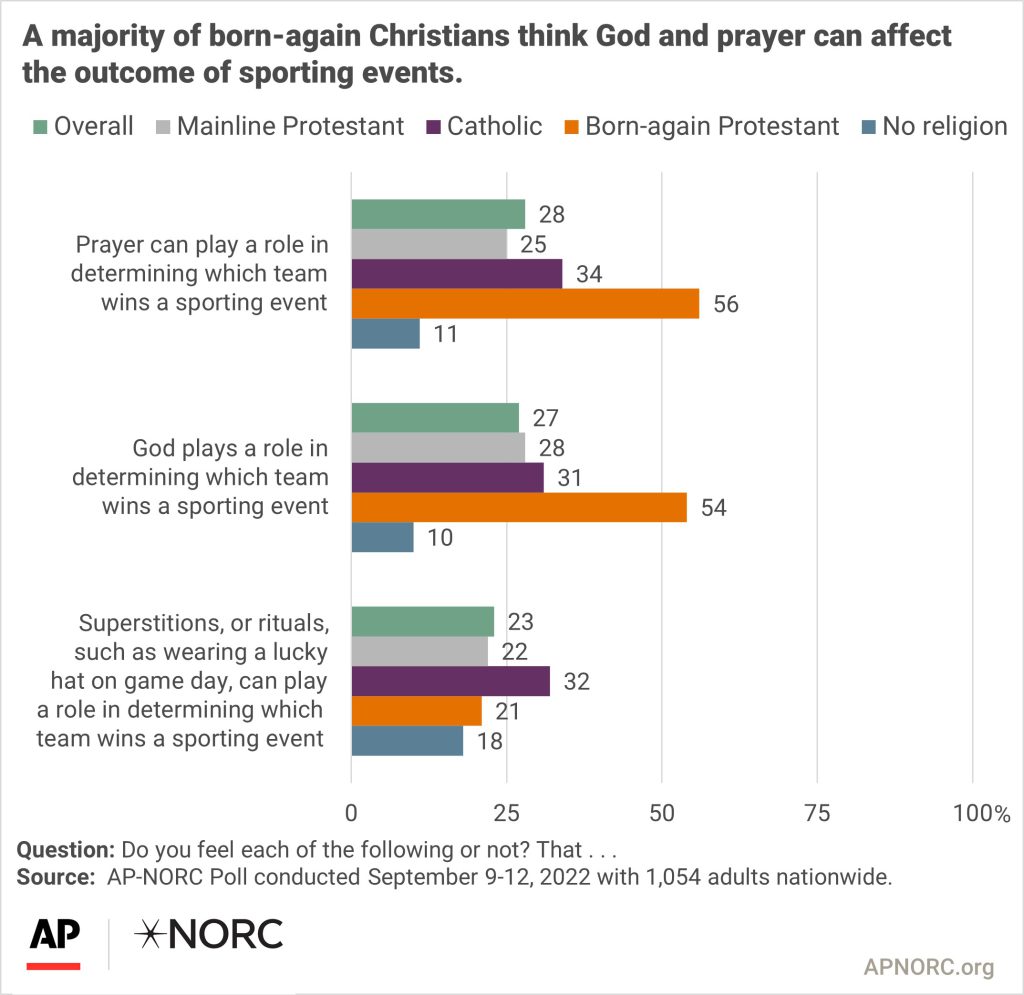
Nineteen percent of the public prays about what happens in high school, college, or professional games. Among parents of a school-aged child, 33% pray about the outcome of their child’s sporting events.
About a quarter of Catholics and born-again Protestants say they have prayed about the outcome of a high school or college sporting event, compared with about 1 in 10 mainline Protestants and people without a religious affiliation.
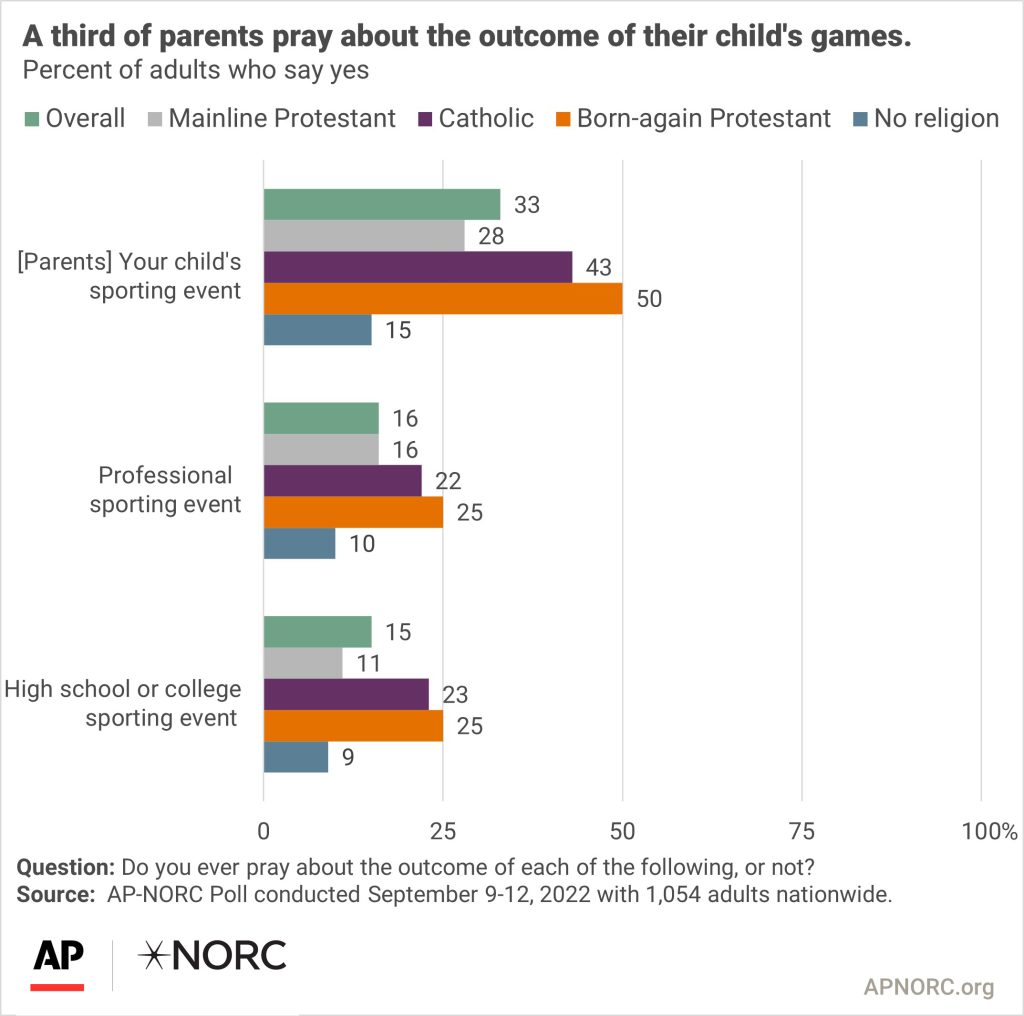
The nationwide poll was conducted September 9-12, 2022 using the AmeriSpeak® Panel, the probability-based panel of NORC at the University of Chicago. Online and telephone interviews using landlines and cell phones were conducted with 1,054 adults. The margin of sampling error is +/- 3.9 percentage points.
- Suggested Citation: AP-NORC Center for Public Affairs Research. (September 2022). “The public’s opinion on religion in sports” https://apnorc.org/projects/the-publics-opinion-on-religion-in-sports/





